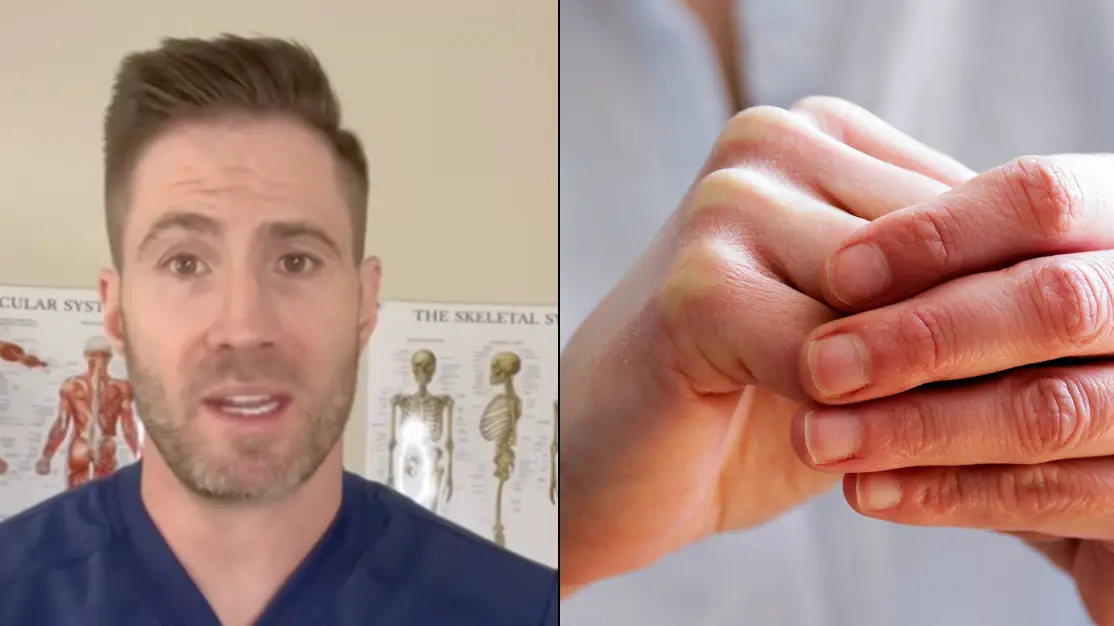
A doctor has explained that a fingernail detail that may indicate an underlying heart condition is present.
Dr Joe, a US-based emergency response doctor who boasts two million followers on TikTok, has warned people against a seemingly harmless red pulsation in one's fingernails that could actually be a 'bad sign'.
The appearance of your fingernails can actual show signs of a number of health conditions, and this is one of the most serious.

Advert
In a clip, Dr Joe explained that spotting a red pulsation when pressing down on your fingernail may be linked to a potentially serious heart condition known as aortic regurgitation.
"When the nail is pressed down there's a pulsation in the nailbed and this is from something called aortic regurgitation," the doctor said.
"As the blood is leaving the heart to go to the body, a significant portion of it actually backflows into the heart and this can cause a whole host of problems," he continued.
The capillary pulsation, that is medically known as Quincke's sign or Quincke's pulse, can be linked to a whole range of difficulties and signals the heart is having to work harder than usual to complete the blood pumping cycle.
The problems connected to Quincke's sign includes issues like shortness of breath and fatigue, but also more serious concerns like the possibility of heart failure, and even death.
According to the NHS, aortic regurgitation occurs when the aortic valve, which links the left ventricle to the aorta, does not close properly when the heart contracts.
This causes blood to leak back into the left ventricle, which then has to work harder to pump the extra blood away from the heart to the rest of the body.

While one in 20 people is said to have aortic regurgitation, only one in 200 will be diagnosed with the more serious kind.
The condition is usually diagnosed in people between 40 and 60 and is more common among men. Some form of the condition is present in 1.5 million people over the age of 65 in the UK.
Other symptoms of aortic regurgitation can be general fatigue, weakness and shortness of breath while exercising, having irregular heartbeat or palpitations, dizzy spells or fainting, as well as swollen ankles and feet.
If you're experiencing any of those symptoms and you're concerned, you're advised to contact your doctor, who may recommend further tests and/or medications to manage the side effects.
Those with more serious cases of aortic regurgitation may need to undergo surgery to repair or replace their aortic valves.
